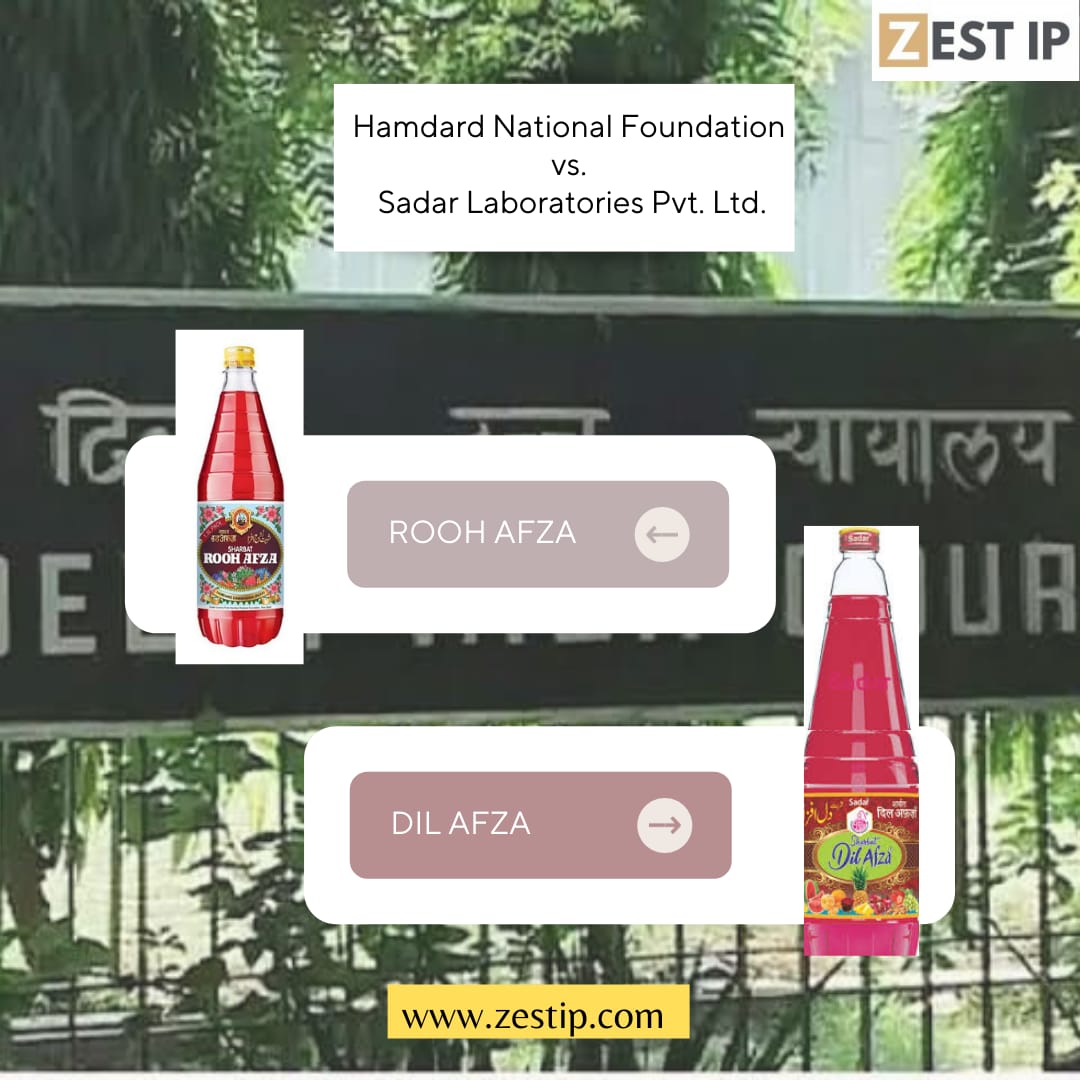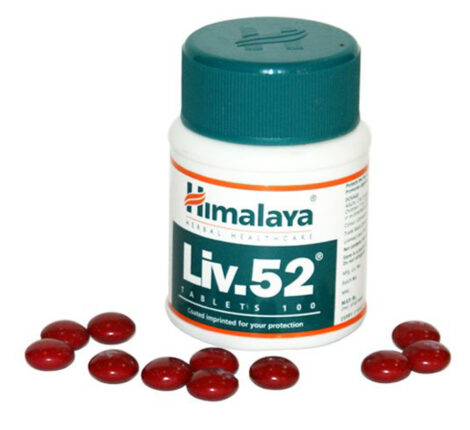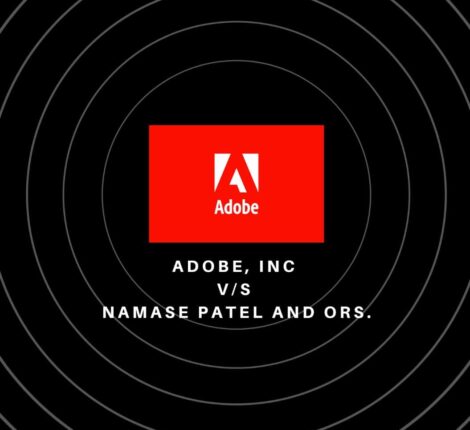Rooh Afza vs. Dil Afza: Delhi High Court refuses injunction, says common consumers can differentiate between the two
“In any case, those who appreciate this deep emotion would be the first to be able to distinguish between ‘Rooh’ and ‘Dil’. However, we are concerned with the common consumer, to whom, in ordinary use of the words, ‘Dil’ and ‘Rooh’ do not denote the same thing.”
– Delhi High Court
This Delhi High Court judgment was pronounced on January 26th, 2022, wherein the petitioners were Hamdard National Foundation (India) & Anr.; the respondents were Sadar Laboratories Pvt. Limited.
BACKGROUND OF THE PARTIES
The plaintiff is a charitable institution engaged in manufacturing and selling Unani, Ayurvedic Medicines, Oils, Syrups, and non-alcoholic beverages for over a hundred years, although earlier trading as Hamdard Dawakhana. On the other hand, the defendants operating earlier as Sadar Dawakhana are also engaged in manufacturing Unani-based pharmaceutical products, syrups, and other botanical products.
THE ISSUE
The plaintiff has claimed that the defendants have been found infringing its trademarks which are pretty well-known in ‘Hamdard’ and ‘Rooh Afza,’ harming their immense reputation and goodwill associated with the same. The plaintiff claims that the mark ‘Rooh Afza’ had been in use since 1942, unique in color and layout, and its registration holds valid to date. Additionally, the defendants have passed their products with the name ‘Dil Afza.’ The advertisement launching this sharbat was deceptively similar to the plaintiff’s style of putting the mark in ringlet bottles, and the defendant has been wrongly granted registration for the same.
THE CLAIMS OF THE PARTIES
The plaintiffs had claimed registration of the mark in 1942, and its reputation has been established in the case of Unani Dawakhana v Hamdard Dawakhana[1], thereby fitting into the definition of a well-known trademark under Section 2(1)(zg) of the Trade Marks Act, 1999 (“the Act”). The plaintiffs also emphasized that they have acquired secondary meaning in the market due to its continuous and extensive usage.
On the other hand, the defendants claimed that the suit for trademark infringement could not be permitted under Section 29[2] of the Act since both the marks are registered. Further, it was contended that the word ‘afza’ is closely associated with the trade of sharbat in the market, with many manufacturers and sellers using the same for their products. The defendants said that the plaintiff’s mark was associated with Hamdard and not just ‘Rooh Afza’ alone. They further mentioned that the Unani Dawakhana v Hamdard Dawakhana could not be used in this case as in this case, one of the parties did not have a registered trademark.
Also read: VISTARA – Trademark Infringement Of Well-Known Mark
The defendants had claimed that they had a considerable reputation in the market, associated with the mark ‘Dil afza’ registered under class 5, and did not cause confusion among the consumers as the mark had to be considered as a whole and not as separate registrations. The defendants said that ‘Dil’ means heart and ‘rooh’ means spirit, which the consumers could differentiate. The word ‘afza’ had a distinct meaning in the dictionary, and the plaintiffs cannot claim its exclusive association with its product. The defendant also pointed out the difference in layout, shapes of the bottles, and labelling of the two products.
REASONING OF THE COURT
The court considered the two products confusing and whether it should issue directions under S.124(5)[3]of the Act to pass an interlocutory order concerning trademark infringement and causing confusion among the consumers.
The court did not reject the plaintiff’s claim of having a considerable reputation in the market while analysing the establishment of the same in the case of Unani Dawakhana v Hamdard Dawakhana even though there are differences between this case and the case at hand. The court held that the words ‘dil’ and ‘rooh’ are not the same and cannot cause confusion among the consumers. Thus, this plea of the plaintiff has been rejected.
Also read: Famous MDH Granted Injunction For DEGGI Mark
Further, while analysing the usage of the word ‘afza,’ the court mentioned the judgment of Cadila laboratories ltd. v. Dabur India Limited[4], the court held that a common suffix between two marks must be given to the previous word, which distinguishes one mark from the other. Moreover, it is not permissible to dissect the words of the two marks. The court had also emphasized that to claim exclusivity of the word ‘Afza,’ the plaintiff would have to show that it has acquired secondary significance. However, while ‘Rooh Afza,’ that is the complete word, may have developed a secondary meaning, indicative of sharbat produced by the plaintiffs, ‘Afza’ by itself does not appear to be of that category.
Therefore, the application has been dismissed by the court. The Court stated that even if the sharbat has been produced only since 2020, no case has been made out to restrain the defendant from marketing its sharbat under the name ‘Dil Afza’. However, the Court directed the defendant to maintain an accurate account of sales of ‘Dil Afza’ sharbat and submit a quarterly report to the Court until the disposal of the suit.
[1] 1930 SCC Online Lah 300
[2] Infringement of registered trademarks
[3] Stay of suit for infringement of trademark
[4] (2001) 5 SCC 73
— Jhanvi Sahni (Intern), NALSAR University of Law
Disclaimer: This brief is intended to provide general guidance to the subject matter. It does not contain legal advice. For any specific advice/corrections, write to [email protected]
© ZEST IP




